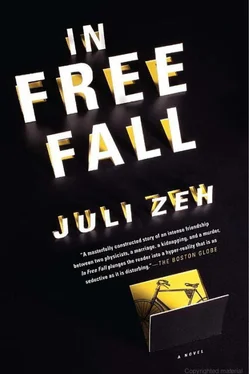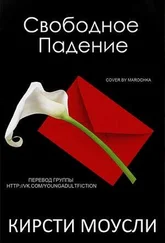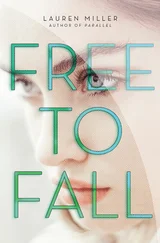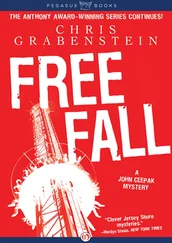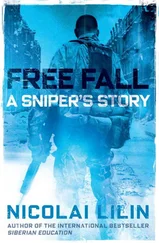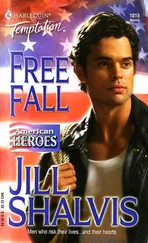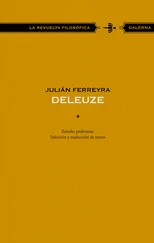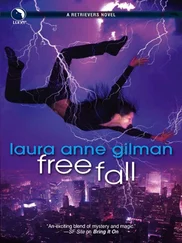“I understand.” He wants to cross his arms but they are hanging too heavily by his sides.
“Sebastian!” he shouts. Nothing in the tableau moves, so he lowers his voice. “You weren’t the expert in doublethink. I’m afraid it was me.”
If he had a saber, he would turn it around now and lay it on the ground in front of him.
HE EXPECTED THE ATTACK, so the shock from the bird’s egg does not topple him immediately. A whistling in the ears, wherever they may be, a stabbing behind the forehead, wherever that has gone, finally a rip straight across the brain, whoever is using it. A rip through the whole body, cutting the detective in two. A person has two of almost everything—legs, hands, eyes, nostrils—so two people can easily be made out of him.
The first few seconds are not painful. Schilf uses both hands to support his head, in which a determined battle is raging. Something is struggling to break free of a prison in which it has been growing for far too long. A sharp beak pecks against the shell. Black dots dance rhythmically in the field of vision. His eyes are no use any longer, so he cannot see if Sebastian and Oskar are lying in each other’s arms. If Schnurpfeil is pushing his bike up the road to stand next to Rita Skura. Instead he sees a fountain of water rising to infinite heights, and a broken rainbow in the mist. A boy whose hair is dotted with spray stretches his arms out toward the sky, laughing. When he turns around, his face is just as much Liam’s as another boy’s. My son, the detective thinks. They’re all lying, the boy says, pointing at his watch. A blond woman looks down at the boy, smiling. Then she looks Schilf in the eye. We’ll see, she says.
A trembling sensation starts under Schilf’s skin. His teeth chatter violently, as if attempting to grind themselves to powder. He scrabbles in his hair with all ten fingers, looking for purchase. Pain finally scythes his legs. The shell shatters.
The detective keels over and does not hit the ground, loses himself in a fall with neither above nor below. He does not feel his hands and feet any longer, only a breeze on his forehead. His skull has opened, a twitching, a fluttering, something forces its way out. It shakes itself, spreads its wings, casts a rainbow of iridescent light that is more beautiful than anything Schilf has ever seen.
Good-bye, observer, the detective thinks.
A bird soars into the air. Finds its flock. Circles over the city.
AS YOU TAKE OFF TOWARD THE NORTHEAST, Freiburg looks less like a city than a carpet of colors flowing into each other. A shimmering rainbow mass. No one could say whether he is a part of it or it is a part of him. A mosaic of roofs on which the morning sun lavishes its golden tones. The quicksilver ribbon of the Dreisam winds its way through. You can float on the bluish air like it is water. The mountains call the birds home. The birds report their news.
It went something like this, we say.
Juli Zeh’s debut novel, Eagles and Angels , won numerous prizes, including the German Book Prize, and a nomination for the International IMPAC Dublin Literary Award. She has worked at the United Nations in New York and Kraków, and currently lives in Brandenburg. In Free Fall , her second book, is being published in seventeen countries and developed for film in Germany.
Eagles and Angels
The theoretical physics concept known as the Many-Worlds Interpretation, in which everything that is at all possible exists somewhere, forms the backdrop for Zeh’s second novel (after Eagles and Angels ), an engrossing if enigmatic story of a murder and its aftermath. German physicists Oskar and Sebastian are both friends and rivals, who have drifted apart after the latter’s marriage. While Sebastian is driving his 10-year-old son to camp, the boy disappears during a stop at a gas station. When a woman phones Sebastian and tells him, Dabbelink must go, he interprets this to mean that to obtain his kidnapped son’s freedom, he must get rid of Dabbelink, a bicycling companion of his wife linked to a medical scandal. Erudite digressions and vivid characters—such as a detective with a trusting nature who learns always to assume the opposite of what she was thinking—combine with a devastating 11th-hour reveal to make a memorable intellectual thriller. (Apr.)
Copyright © Reed Business Information, a division of Reed Elsevier Inc. All rights reserved.
“[A] masterfully constructed story of an intense friendship between two physicists, a marriage, a kidnapping, and a murder, In Free Fall plunges the reader into a hyperreality that is as seductive as it is disturbing.”
—
Boston Globe
“An elegant quasi-thriller about physics, murder, and the solving of murders… This is one of the best books of the year. Zeh has enough control to keep the murder from being lurid and the physics from being dull. Her prose is sharp and often witty, and the excellent translation means every moment shines brightly.”
—
New York Observer
“Engrossing… vivid characters combine with a devastating 11th-hour reveal to make a memorable intellectual thirller.”
—
Publishers Weekly
“A highly cinematic thriller… Zeh’s smart novel will appeal to a wide range of readers.”
—
Library Journal
“Add a hospital scandal and two of the quirkiest detectives in fiction, mix with Juli Zeh’s thrumming, moody prose, and you have one of the finest crime novels you’ll read.”
—
Herald Sun
“It is such a delight to watch Juli Zeh play her entire repertoire of literary skill… challenging the conventions of the classical detective story with subtle irony.”
—
Die Zeit
“Juli Zeh uses the structure of the detective novel like a composer uses his music book. And into this book she writes, with remarkable consistency, her musical score… Here’s a piece of literature that takes the liberty to develop its very own rules, and to impose them upon an obsolete form, coming indeed very close to a musical work in its tenor and thematic variation… One might think that such perfection, such erudition must leave the reader untouched, bored even… but it does not. For that, Zeh’s labyrinth is built too clever…
This book is a work of fiction. Names, characters, businesses, organizations, places, events, and incidents either are the product of the author’s imagination or are used fictitiously. Any resemblance to actual persons, living or dead, events, or locales is entirely coincidental.
Translation copyright © 2010 by Christine Lo
All rights reserved.
Published in the United States by Nan A. Talese / Doubleday, a division of Random House, Inc., New York, and in Canada by Random House of Canada Limited, Toronto.
www.nanatalese.com
Originally published in Germany as Schilf by Schöffling & Co. Verlagsbuchhandlung GmBH, Frankfurt am Main, in 2007. Copyright © 2007 by Schöffling & Co. Verlagsbuchhandlung GmBH, Frankfurt am Main.
This translation originally published in Great Britain in paperback as Dark Matter by Harvill Secker, the Random House Group Ltd., London.
Doubleday is a registered trademark of Random House, Inc. Nan A. Talese and the colophon are trademarks of Random House, Inc.
LIBRARY OF CONGRESS CATALOGING-IN-PUBLICATION DATA
Читать дальше
